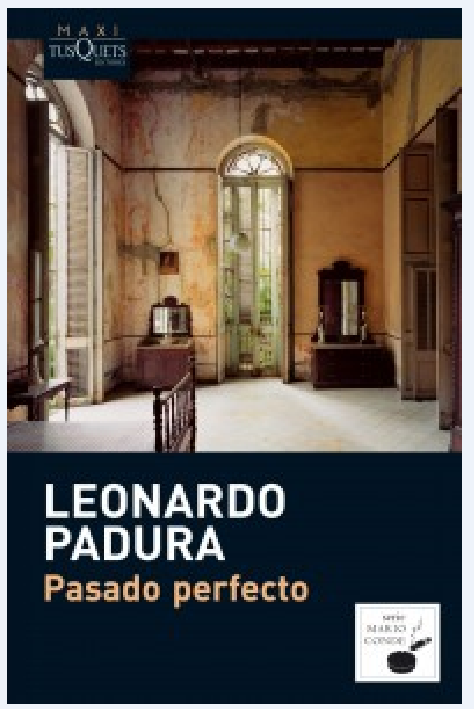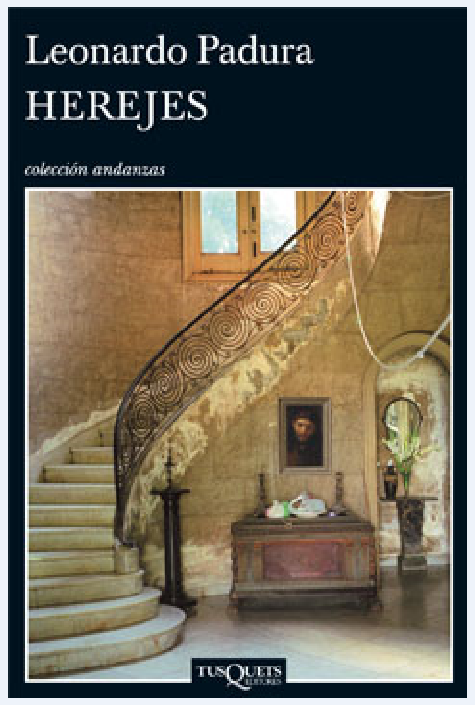Yvon Grenier
Literal: Latin American Voices, April 2016
Original Article: To be a writer in Cuba


 The methodology of Leonardo Padura
The methodology of Leonardo Padura
Soy un escritor, en lo fundamental, de la vida cubana, y la política no puede estar fuera de esa vida, pues es parte diaria, activa, penetrante de ella; pero yo la manejo de manera que sea el lector quien decida hacer las asociaciones políticas, sin que mis libros se refieran directamente a ella. De verdad, no la necesito ni me interesa, pero, en cambio, me interesa muchísimo que mis libros puedan ser leídos en Cuba y que la gente pueda dialogar con ellos.
Leonardo Padura Cubaencuentro, 19 December 2008
“People think that what I say is a measure of what can or can’t be said in Cuba,” Leonardo Padura once stated in an interview with Jon Lee Anderson. In fact, what he says is a measure of what he—along with some other Cuban writers or artists—is allowed to say in Cuba. It is a privilege, not a right. Lesser authors who don’t enjoy his international fame (and Spanish passport) probably couldn’t have published a book like El hombre que amaba los perros, as he did in 2010, a year after it was edited in Spain by Tusquets. In fact, the book probably wouldn’t have appeared at all in Cuba decades or even years ago, which makes him the beneficiary (and the confirmation) of a recent openness. The government grants Padura some recognition (he won the National Literature Prize in 2012), as well as some privileges commonly bestowed on successful writers and artists: he can travel and publish abroad, and he can accept monetary compensation in foreign currency. But he is kept in a box. His books are nearly impossible to find on the island. The prestigious awards and accolades he is receiving abroad are mostly glossed over by the Cuban media. Finally, his insightful but politically cautious journalism is read all over the world, but not in Cuba (save for a few exceptions).
Numerous times Padura has made clear his desire to live in the house his father built in Mantilla, a working class municipality on the outskirts of Havana. He sometimes signs his articles, “Leonardo Padura, Still in Mantilla.” He also wants to be a “Cuban writer,” and as such, he feels he has “a certain responsibility because our reality is so specific and so hard for many people.” A genuine writer cannot be a mouthpiece for the government. Padura’s success in conciliating these two potentially conflicting ambitions—to be a writer who lives and work in Cuba—is, as John Lee Anderson put it, “a tribute both to his literary achievement and his political agility.” Blogger Yoani Sánchez wrote, “His ‘rarity’ lies fundamentally in having been able to sustain a critical vision of his country, an unvarnished description of the national sphere, without sacrificing the ability to be recognized by the official sectors. The praise comes to him from every direction of the polarized ideological spectrum of the Island, which is a true miracle of letters and of words.” This is why Padura is often seen as a sort of experiment on how to express freedom in a land bereft of freedom of expression.
…
…
Conclusion
Rather than pushing for more room for expression, Padura’s method seems to be to occupy all the space available without crossing any red lines. This has allowed him to elude the fate that befell so many writers in Cuba. His criticism of many aspects of Cuban society is achieved without directly addressing the political system in Cuba. This method works, in the sense that it provides him with basic guidelines to practice his métier in Cuba. Padura is not an exponent of the “art for art’s sake” viewpoint. He wants to talk about the “reality” in Cuba, but without acting like an activist for change. He cultivates a “practice of social and human introspection that occasionally reaches politics, but that does not part from there..” But one wonders, what happens when it comes to politics, “cuando llega a la política”? The answer is: not much, because he can’t go there and continue living and working in Mantilla. Living and working in Cuba is most valuable not only for him, but also for his readers. In one of his essays entitled “I would like to be Paul Auster,” he complains that he would love not to be constantly asked about politics in his country and how and why he continues to live there. But this is very much his niche: he is widely seen as the best writer in Cuba. He offers us an off-the-beaten path view of a relatively closed society, one that is free of propaganda if not entirely free tout court. No writer could attain global respectability producing a prose laden with official propaganda. By occupying a small but significant critical space in Cuba, Padura becomes more interesting for Cuba observers and more intriguing for students of cultural and literary trends on the island. In this sense, he may be compared to authors and artists who produce somewhat critical material under dictatorial regimes, like Ismael Kadaré (Albania-France) or Murong Xuecon (China) —he is closer, in fact, to the former than the latter.
In sum, Leonardo Padura found a sweet spot that has allowed him to navigate the tumultuous waters of censorship while searching for (and finding) his own voice. He has managed to become, as one observer wrote, “perhaps the foremost chronicler of the island.” Does he (and do his readers) pay too high a price for his privilege to write “from Mantilla”? Would he be more valuable to us, and a better writer, in exile?
Continue Reading: Yvon Grenier, TO BE A WRITER IN CUBA
Yvon Grenier teaches and writes on Comparative politics, Latin American politics (esp. Cuba, Mexico and Central America), Art /literature and politics, as well as political violence.He is also a Contributing Editor for Literal as well as an occasional political commentator for Radio Canada/CBC. His Twitter is @ygrenier1

